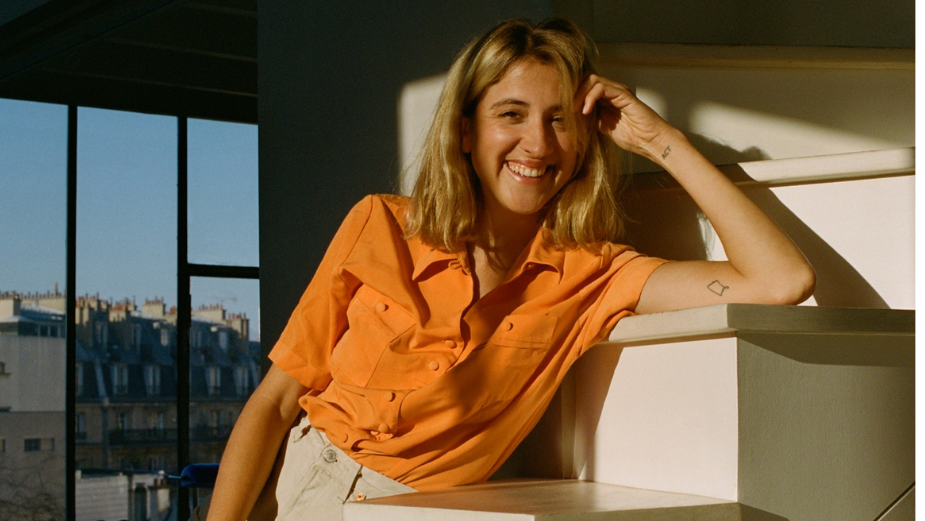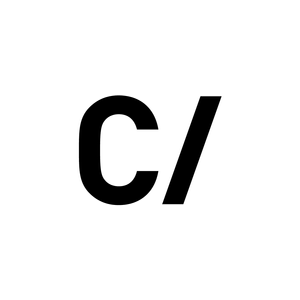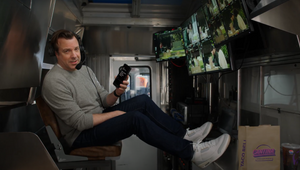
The Directors: Cloé Bailly

Paris-based Cloé Bailly has directed for international clients such as Bumble, Hulu, Vogue, Burger King and Hermès. Her humoristic approach to capturing her characters’ emotional journeys comes through in the commercials and films she creates.
Cloé was nominated for Best New Director at Shots and has won Gold at Cannes Lions YDA. She is currently working on her first feature as well as the second season of the French TV series Jeune & Golri.
Name: Cloé Bailly
Location: Paris
Repped by/in: Caviar
LBB> What elements of a script sets one apart from another? What kind of script gets you excited to shoot it?
Cloé> I get excited when a script is both visual and well-written (a good scenario, a solid storyline, ideally great dialogue). For instance, well-written dialogue won’t be appealing to me if it’s too ‘‘ad-y’’ and if I can’t explore anything aesthetically. But a purely visual board with no substance won’t excite me either.
The notion of daring is also very important when a script offers something different, isn’t shy, and has a bold idea (it can be bonkers humour, weird characters, the possibility to be experimental with visuals, etc). Basically, when the creative isn’t vanilla nor conventional, that’s when a script stands out and gets exciting.
LBB> How do you approach creating a treatment for a spot?
Cloé> The writing process is crucial because that’s when the structure is laid down and when the tone is found. Every detail counts. I try to never leave some bits ‘for later’. Every transition, every line, every shot has to be intentionally thought of at that stage (and then I might move things around in the pre-production process as well as on set).
My brain processes better by writing rather than with images. I start with the script - breaking it down as much as possible. It’s about how my choice of mise-en-scène can heighten it.
Once the script is super clear in my head, I can focus on explaining my vision, and being as concise and concrete as possible: locations, characters, art direction, cinematography, edit, etc.
LBB> For you, what is the most important working relationship for a director to have with another person in making an ad? And why?
Cloé> If I really had to pick, because each member of the crew is important, I’d probably say the director of photography because the DOP’s visual and technical approach adds depth and improves the narrative. We’re making motion pictures, where the visuals and the narrative are constantly intertwined!
Creating together with a DOP can bring such new dimensions. I’m quite theatrical in my way of approaching a script, and very much focused on the writing/script part. Sometimes it’s hard for my brain to experiment with camera movements and visual tricks, which is why collaborating with a creative, skilled DOP gives me new perspectives and new ways of perceiving scenes.
On set, if the work relationship is good and the communication is healthy, it makes the shooting process so much smoother. Once you reach that point of total mutual understanding with the DOP, you can focus on the rest - mostly on directing actors.
LBB> What type of work are you most passionate about? Is there a particular genre or subject matter or style you are most drawn to?
Cloé> I’d say anything character driven. I like to tell someone’s story, even if it’s in thirty seconds. I mostly direct comedy, but I’d love to direct more drama pieces: capturing people’s emotional journey, whether it’s joyful or tragic.
LBB> What misconception about you or your work do you most often encounter and why is it wrong?
Cloé> I wouldn’t say it’s a misconception, it’s more of a pigeon-hole: the label ‘comedy director’ feels a bit simplistic sometimes, because as I said above, I love to direct characters and emotional journeys, not only LOLs.
That being said, I think I’ll always have a natural incline towards comedy because it’s always been my way of expression. But to me, the best dramas are infused with a certain twist of comedy, which adds another layer of truth.
LBB> What’s the craziest problem you’ve come across during a production? How did you solve it?
Cloé> Once, we got a camera stolen in the middle of a big shoot in Paris. Honestly, the problem solving mostly came from my EP at Caviar Paris who managed to rent another camera within one hour while managing the client so that they wouldn’t find out and freak out.
LBB> How do you strike the balance between being open/collaborative with the agency and the client, while also protecting the idea?
Cloé> It’s a fine balance to find and it’s mostly about ego. I guess naturally I respect the person in front of me and go from the standpoint that they know their job. So before overprotecting my vision, I try and listen to the agency or client’s point of view, which sometimes may sound absurd but makes total sense on a marketing and branding perspective.
Then once I’m in possession of the information, I quickly assess if this is a battle worth fighting: shall I do another take, which ends up taking less time than a discussion? Or shall I explain why I disagree with this comment or that decision? I always try to make a balanced choice each time a disagreement/conflict comes in, then I have no problem strongly protecting the idea when it feels necessary.
LBB> What are your thoughts on opening the production world to a more diverse pool of talent? Are you open to mentoring and apprenticeships on set?
Cloé> I would absolutely love to mentor young directors. When I started in this business, I was lucky enough to have a few directors welcoming me on their set, sometimes even inviting me to assist them on small stuff. It was a total game-changer. In this very closed-off, hierarchical industry, it sends the message that a set can be accessible. That it’s possible for young people who come from a completely different background, like me. I often feel like some older, senior directors don’t want to leave room for the new talents. It’s threatening for them. I don’t want to repeat that same egotistic mistake and would absolutely love to welcome apprentices on set.
LBB> What’s your relationship with new technology and, if at all, how do you incorporate future-facing technology into your work?
Cloé> I think I’m a bit old-school. Another way to put it would be to say I’m attracted to timelessness. I don’t really mix media nor incorporate tech in my work (for now).
LBB> What are you currently working on that you can tell us about?
Cloé> I’m currently focusing on writing my first feature film (in French) as well as prepping season two of Jeune & Golri, a French TV series which I’ll co-direct with Agnès Hurstel, the creator/writer/main actress of the show. I’m also post-producing several commercials and will most likely direct some more over the next few months!
LBB> Which pieces of work do you feel really show off what you do best?
Cloé> The Bumble ad and the Vogue pieces are both small budgets, but I love them. They don’t display crazy camera tricks, they’re pretty simple, and even stripped down, but I think they’re sincere and witty. It’s the kind of comedy I like - human, real, and a bit cynical.
The Orange ad is a more recent piece and I really like the visuals, the pace, and the art direction. It’s a bit different to what I usually do but I think it’s honest to who I am because it still feels human and warm.













